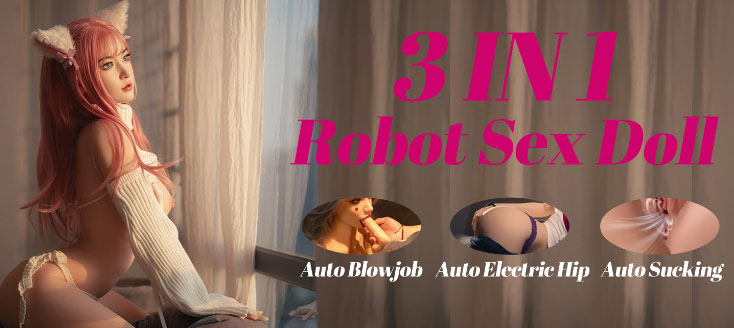What are the common misconceptions about sex dolls?
The perception of sex dolls has evolved over the years, but many misconceptions still persist. These misunderstandings can stem from cultural stigma, media portrayals, and general lack of knowledge about the products. Here are some common misconceptions about sex dolls, along with detailed information to clarify them:
1. Sex Dolls Are Just for Loneliness or Insecurities
Misconception
Many people believe that owning a sex doll is a sign of loneliness, insecurity, or an inability to form real human connections.
Reality
- Varied Reasons for Ownership: People own sex dolls for a multitude of reasons, including curiosity, artistic expression, companionship, sexual exploration, or simply as a novelty.
- Healthy Exploration: For some, dolls can be a healthy outlet for sexual expression or a way to explore fantasies without involving other people.
- Satisfaction Beyond Sexuality: Many users report feelings of companionship and comfort, treating dolls as part of their lifestyle rather than a crutch.
2. Sex Dolls Are Only for Men
Misconception
It is often assumed that sex dolls cater exclusively to male consumers.
Reality
- Diverse Audience: While many sex doll brands have traditionally marketed towards men, there is a growing market for female sex dolls and products designed for women, couples, and LGBTQ+ individuals.
- Inclusivity: Many companies now create dolls that represent various body types, genders, and sexual orientations, catering to a wide audience.
3. Sex Dolls Are Just Toys
Misconception
Some people view sex dolls merely as toys or objects devoid of emotional significance.
Reality
- Emotional Connections: Many users report forming emotional connections with their dolls, often treating them as companions. Some may even name them or include them in their daily lives.
- Psychological Impact: For some, the presence of a sex doll can provide emotional support, helping to alleviate feelings of loneliness or anxiety.
4. Owning a Sex Doll Is Taboo or Shameful
Misconception
Cultural attitudes often frame sex dolls as shameful or taboo, leading many to believe that owning one is inherently wrong.
Reality
- Cultural Shifts: Attitudes toward sex dolls have evolved, with more people accepting them as legitimate products for sexual and emotional fulfillment.
- Advocacy for Normalization: Increasingly, conversations about sexual wellness and self-exploration are destigmatizing the use of sex dolls, positioning them as tools for empowerment rather than shame.
5. Sex Dolls Are Not Realistic
Misconception
Many believe that sex dolls are unrealistic and lack the ability to provide genuine experiences.
Reality
- High-Quality Manufacturing: Advances in materials and technology have resulted in highly realistic dolls, with detailed features, lifelike textures, and articulated joints that allow for various poses.
- Customization Options: Users can choose from a wide range of customizable features, enhancing the lifelike quality and personal connection to the doll.
6. Sex Dolls Are Only for Sexual Use
Misconception
It is often assumed that the primary purpose of sex dolls is solely for sexual pleasure.
Reality
- Variety of Uses: Beyond sexual use, dolls can serve as conversation starters, companions for photo shoots, and even as artistic muses for photographers and artists.
- Role-Playing: Many users engage in role-playing scenarios with their dolls, creating elaborate narratives that go beyond physical interaction.
7. Sex Dolls Are Dangerous to Relationships
Misconception
Some believe that owning a sex doll can jeopardize real-life relationships, leading to infidelity or emotional detachment.
Reality
- Supplementary Role: For many, sex dolls complement rather than replace human relationships. They may enhance sexual experiences with partners or serve as a means for exploration without affecting existing relationships.
- Communication and Understanding: Some couples find that incorporating a sex doll into their lives can improve communication about desires and fantasies, leading to deeper intimacy.
8. All Sex Dolls Are Expensive
Misconception
There is a belief that sex dolls are prohibitively expensive and only for those with high budgets.
Reality
- Range of Options: The market offers a wide range of sex dolls at various price points, from budget-friendly options to high-end, customizable models. Consumers can find dolls that fit their financial constraints.
- Investment in Quality: While higher-quality dolls come at a premium, many budget options still provide satisfactory experiences for users.
9. Sex Dolls Require High Maintenance
Misconception
Some users fear that owning a sex doll involves extensive upkeep and maintenance.
Reality
- Care Requirements: While it’s true that sex dolls require care (like cleaning and proper storage), the maintenance routines are generally straightforward. Following manufacturer guidelines can help maintain the doll’s quality and longevity.
- Material Considerations: Different materials (e.g., TPE vs. silicone) have unique care requirements, but overall, users find that with proper handling, dolls can last a long time with minimal effort.
10. Sex Dolls Will Replace Human Relationships
Misconception
There is a concern that as technology advances, sex dolls will replace human relationships and interactions.
Reality
- Human Connection: While sex dolls can provide companionship and fulfillment, they are not a substitute for genuine human relationships. Most users acknowledge the importance of human connections for emotional health and well-being.
- Supplemental Experience: Many people use dolls to supplement their experiences, not to replace them, recognizing that real-life relationships provide unique emotional and psychological benefits that a doll cannot replicate.
Conclusion
In summary, misconceptions about sex dolls often stem from societal stigma, lack of understanding, and cultural attitudes surrounding sexuality. As awareness grows and technology advances, the narrative around sex dolls continues to evolve, highlighting their diverse uses, the range of users, and the emotional connections that can develop with them. Understanding these misconceptions can foster a more open dialogue about sex dolls, their purpose, and their place in modern society, ultimately contributing to a healthier perspective on sexual wellness and personal expression.

